Quick yoga and lifestyle tips to help you cope with some common problems which the season brings along and to make you better enjoy winter.
Nothing can be compared to the feeling of snuggling in a blanket on a chilly winter morning. Waking up lazily to a cup of hot coffee, sipping it while enjoying the mist outside the window, or chewing on nuts and dates in the evenings. Winter brings with it all these luxuries and more. However, it is also involuntarily accompanied by dry skin, chapped lips, body ache, cold, cough, viral infections, and joint pains. Not to forget a general dull and gloomy feeling, which is an unsolicited gift of the weather outside.
Free Yourself from Congestion
- Take 1 teaspoonful of Lemon juice, 1 teaspoonful of Ginger juice, and 1 tablespoonful of Honey. Mix them well in 1 cup of lukewarm water and drink the preparation.
- Boil 20 Tulsi (Basil) leaves, 5 grams of Ginger, and 7 Peppercorns in 2 glass of water till it comes down to 1 glass. Add sweetener, if needed and drink the preparation.
Yoga can be your additional protective cover this winter, providing you warmth and the strength to fight common infections. We bring you a few yoga remedies that can help you fully enjoy the spirit of the season.
1. Keep Warm
However tempting may be the idea of sleeping in, try not to avoid your daily yoga time. It will help you keep warm and also prevent those regular aches and stiffness in joints. Start your day with a few rounds of Surya Namaskar and follow them up with some warm-up exercises. Also, include Sukshma Vyayam in your practice. This can help prevent rigidity in joints, a common occurrence in winter, especially among the elderly.
2. Keep the Bug At Bay
Come winter and behind it follow cold, cough, viral fever and the like. Regular yoga practice helps strengthen body immunity so that you can keep the bacteria at bay.
Says Neeta Singhvi, a college student, “I used to hate winter for the simple reason that I would fall sick every season. It would start with cold that would get worse and I would then end up in bed for five days with viral fever. I had had enough! However, after doing the Sri Sri Yoga Program three years back and practicing the techniques at home, I don’t fall sick so often now – at least not every winter. I’m so relieved!”
Practicing pranayamas (breathing exercises) helps clear chest congestion, which is so common during winter, and also helps boost immunity. The best for the season is Surya Bhedana (Right Nostril Breathing). Kapal Bhati Pranayama (Skull Shining Breathing Technique) also heats up the body and is good to practice in winter. Also, try Jal Neti, an ancient yogic technique taught at Sri Sri Yoga Level 2 Program, to fight common allergies this winter.
3. Fight the Blues
The dull, gloomy weather outside automatically casts its shadow on us and for no reason, we tend to feel low and lethargic. Make some time to meditate this season. It works like an instant mood changer and you can see the difference for yourself! It’s a good idea to sit with your eyes closed for a few minutes as you end your daily yoga practice (after asanas and pranayamas). It is an ideal start to the day, preparing you to face the day with a strength and smile.
4. Indulge But Burn It Out
Winter just seems to give an excuse to gorge on countless delicacies – both sweet and savory. However, don’t let it become an excuse to put on weight this winter. Eat whatever you like but make sure to sweat it out with some active yoga asanas (postures) and stretches that help reduce weight while toning the internal organs as well.
Practice these Winter yoga sequences to improve your immunity:
Paschimottanasana
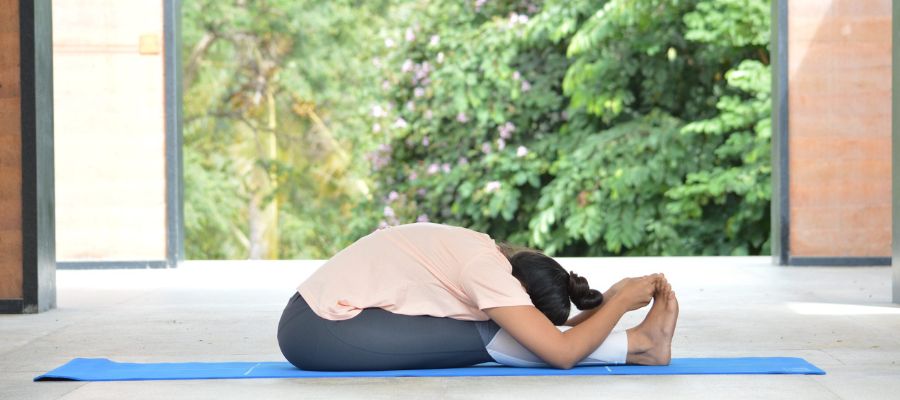
- Massages and tones the abdominal organs
- Stretches the lower back, hamstrings and hips
Trikonasana
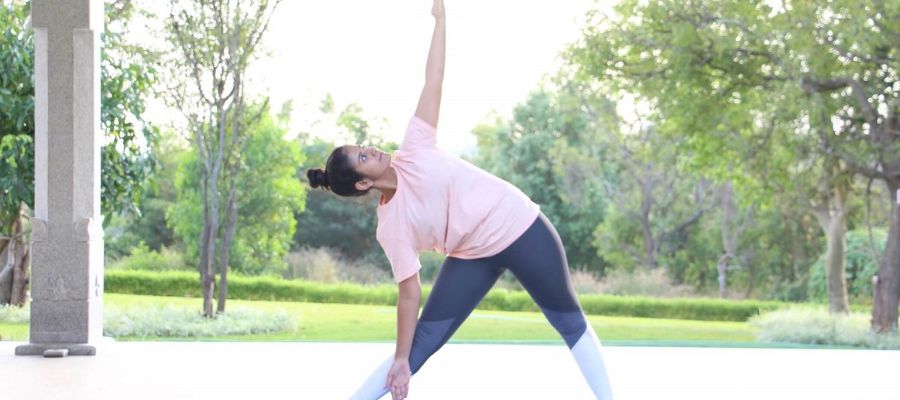
Benefits of Trikonasana.
Sarvangasana
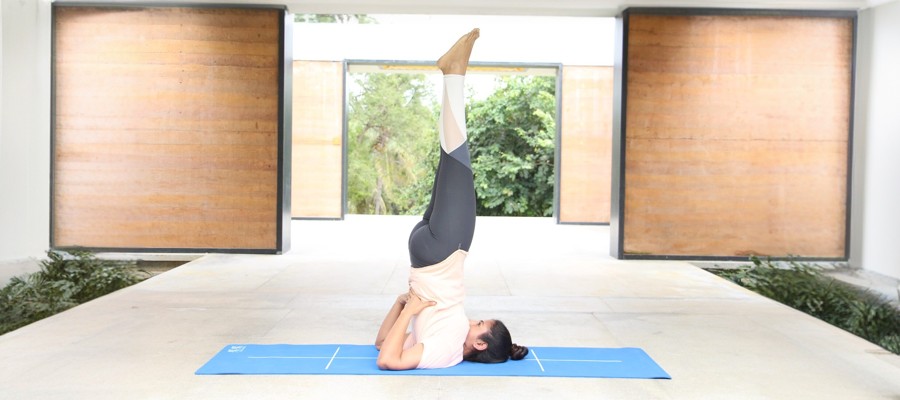
Read more for how to do Sarvangasana.
- Stimulates thyroid and parathyroid glands, thus normalizing their functioning
- Relieves from constipation and indigestion
Bhujangasana
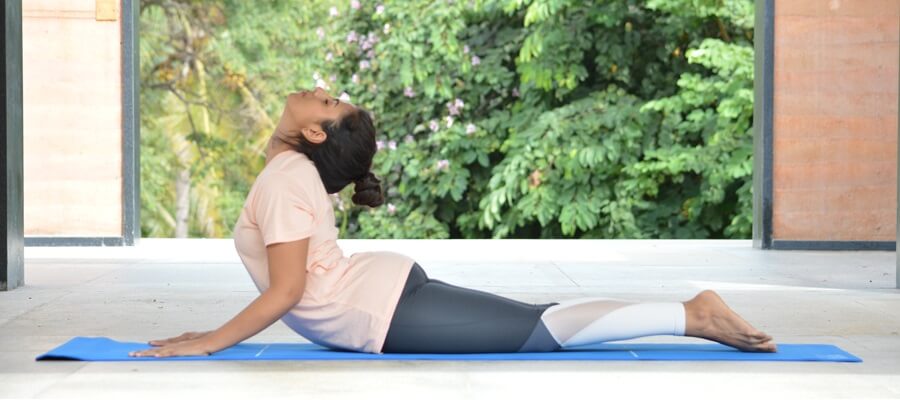
- Tones the abdomen and improves blood circulation
- Strengthens and improves flexibility of the middle and upper back
Learn more about Bhujangasana.
Dhanurasana
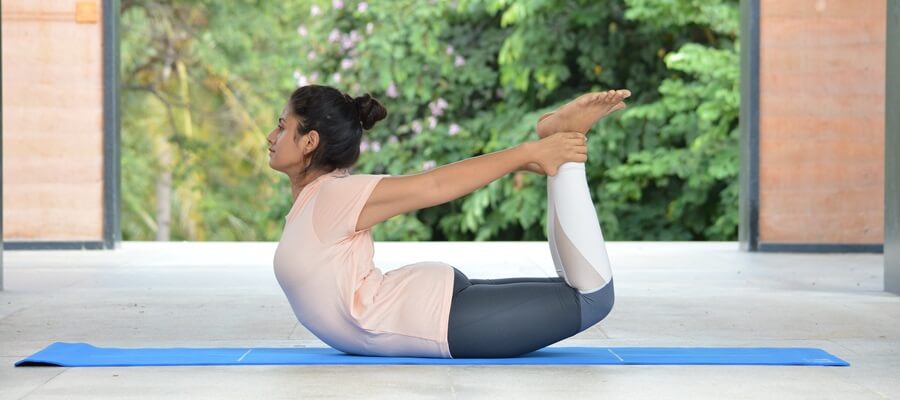
Benefits of Dhanurasana.
- Tones the leg and arm muscles
- Relieves menstrual discomfort and constipation
Shalabhasana
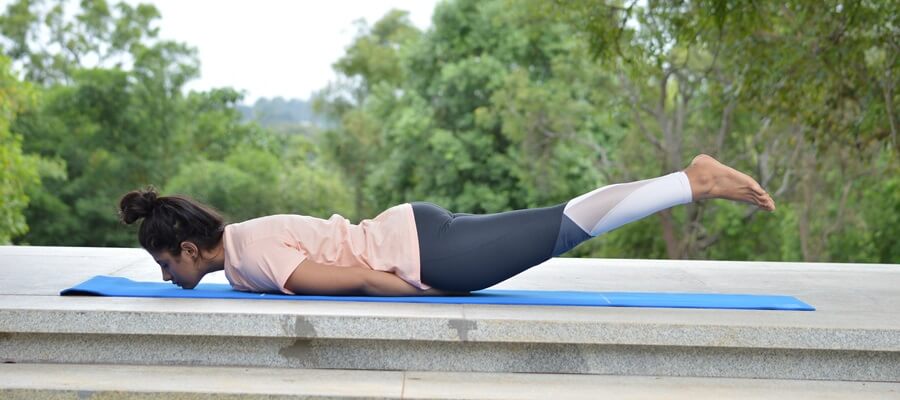
shalabhasana
- Tones the nerves and muscles, especially in the neck and shoulders
- Tones the abdominal organs.
Diet and Lifestyle Tips For A Healthy Winter
- People with a predominant Kapha body constitution should take particular care during winter as kapha imbalance is pretty common in the form of cold and cough. Ginger tea works best for kapha people. Also, lessen the intake of grains.
- Because of the cold outside, the body is instinctively in a contracted mode. Frequent body massage with oil that suits your skin type helps release contraction in the muscles.
- Treat yourself to aromatherapy and light some eucalyptus oil in the room. It aids breathing and helps release any congestion in the throat or chest area.
- According to Ayurveda, napping during the day in winter should be avoided. Also, avoid sleeping in for long hours as that promotes sluggishness in the body. Ensure an adequate sleep of 6-8 hours at night. As you get ready to sleep, gargle with warm water, and add a pinch of turmeric powder and salt, everyday or every alternate day.
- Make sure you get your daily dose of sunlight by engaging in some outdoor activity such as gardening, early morning or late evening sun gazing, walking, etc.
- Food preparations that contain milk, butter, sugarcane juice, and ghee (clarified butter) are recommended during this season. It is good to include warm soups, stewed vegetables, cooked rice and oatmeal in your diet. These foods provide soothing warmth to the system. Know more about winter foods for glowing skin.
- Nuts such as almonds, cashews, walnuts and pistachios (taken sparingly) make a good diet supplement in the cold weather. Dates, figs, spinach and green leafy vegetables are also ideal.
- Herbal supplements such as Chyavanprash and Dasamoola Rasayan are particularly recommended in the winter season as they help fight cold in the body.
Based on inputs by Dr. Sejal Shah, Sri Sri Yoga teacher and Dr. Nisha Manikanthan, Sri Sri Ayurveda expert.





















